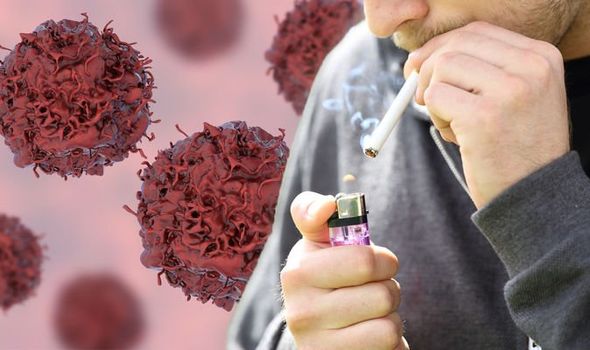COVID-19 Study: Research Shows That People Who Smoke Most Likely To Express More ACE2 Protein Which Facilitates SARS-CoV-2 Infections
Source: COVID-19 Study May 19, 2020 5 years, 8 months, 2 weeks, 2 days, 22 hours, 50 minutes ago
COVID-19 Study: A collaborative study lead by researchers from Cold Spring Harbor Laboratory, Goggle Inc, Johns Hopkins University, Hofstra University and Stony Brook University reveals that smoking increases the gene expression of ACE2, the protein that binds SARS-CoV-2 hence which may promote COVID-19 infections. The research suggests that prolonged smoking could cause an increase of the ACE2 protein in the lungs, possibly resulting in a higher rate of morbidity in patients.

Already previous data from COVID-19 studies suggests that cigarette smokers are more likely to have health complications than non-smokers.
The research findings are published in the journal: Developmental Cell.
https://www.sciencedirect.com/science/article/abs/pii/S1534580720304019?via%3Dihub#!
Dr Jason Sheltzer, a cancer geneticist at Cold Spring Harbor Laboratory and senior author of the study told Thailand Medical News, "Our study findings provide a clue as to why smokers who develop COVID-19 tend to have poor clinical outcomes. We found that smoking caused a significant increase in the expression of ACE2, the protein that SARS-CoV-2 uses to enter human cells."
Angiotensin Converting Enzyme 2 or ACE2 is a regulatory protein that has been linked to vulnerability to the 2003 SARS (2003) virus.
Dr Sheltzer added, "Evidence from mouse experiments has shown that higher levels of ACE2 make mice more susceptible to SARS.”
Numerous new studies SARS-CoV-2 coronavirus found that when human ACE2 was highly expressed in mice infected with COVID-19, they died more quickly.
Importantly, it is known that in humans, the lungs act as one of the primary locations of ACE2 production. To assess the direct impact of smoking on ACE2 expression in the lungs, Dr Sheltzer compared ACE2 gene expression from the lung epithelial tissue of people who smoked cigarettes regularly to those who had never smoked.
AN URGENT APPEAL: Please help support this website by kindly making a donation to sustain this website and also all in all our initiatives to propel further research: https://www.thailandmedical.news/p/sponsorship
Dr Sheltzer added, "We found that smoking caused a significant increase in the expression of ACE2. Also it was noted that smokers produced 30%-55% more ACE2 than their non-smoking counterparts. This change was also dose dependent, with heavy smokers having the greatest ACE2 values.”
It was also observed that the effects of smoking on ACE2 may be tied to the goblet cells in the lungs, one of the few lung cell types that Dr Sheltzer found to actively express the ACE2 gene.
He added, "Goblet cells produce mucous to protect the respiratory tract from inh
aled irritants. Thus, the increased expression of ACE2 in smokers' lungs could be a byproduct of smoking-induced secretory cell hyperplasia. Also an uptick in ACE2 was also associated with the inflammatory pulmonary diseases COPD and idiopathic pulmonary fibrosis.”
Dr Sheltzer's findings indicate that other viral infections, such as influenza, as well as interferon signaling which is the part of the body's virus defense system, alos increase ACE2 expression.
Dr Sheltzer further added, "Because of this, it's conceivable that SARS-CoV-2 could trigger the upregulation of its own receptor, thereby creating a positive feedback loop leading to more infections."
Although the impact of cigarette smoke and ACE2 expression is compelling, it is not permanent. By comparing the lungs of current smokers to those who quit smoking for at least 12 months, Dr Sheltzer found "a significant decrease in ACE2 expression, demonstrating that the effects of smoking on ACE2 can be reversed."
Additional further studies on the effects of cigarette smoke have shown mixed results.
Dr Sheltzer commented, "Cigarette smoke contains hundreds of different chemicals. It's possible that certain ingredients like nicotine have a different effect than whole smoke does,"
Dr Sheltzer and his team are exploring other aspects as well including ways to regulate ACE2 protein expression.
For more on
COVID-19 Studies, keep logging to Thailand Medical News.
AN URGENT APPEAL: Please help support this website by kindly making a donation to sustain this website and also all in all our initiatives to propel further research: https://www.thailandmedical.news/p/sponsorship
